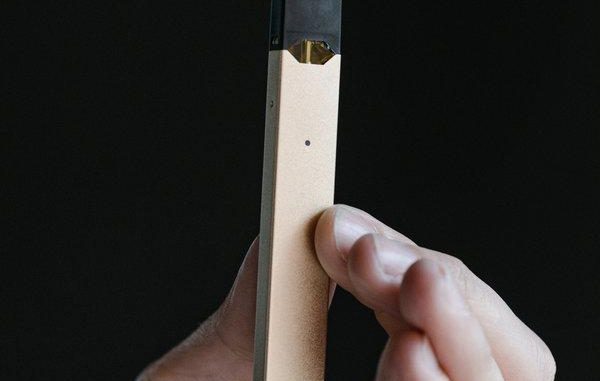
Angelina Beltrani, Copy Editor|
It was not uncommon to posess smoking and nicotine addictions for people born in the 1960s, and who grew up in the ‘70s and ‘80s. Naturally this applies to generations even before those decades as well. The dangers of smoking were either unknown or simply not a normalized part of the culture at the time. However, children and teens across America have been subject to Drug Abuse Resistance Education programs or something similar. We accept that all buildings are non-smoking and do not question designated smoking areas.
We have seen all the anti-smoking, fear-inducing-cancer PSAs. We have sat through many outdated VHS tapes about peer pressure. So, when we get to college and are required to take some version of an alcohol and drug seminar, it can be tedious. Some might argue we’re a little numb to it. But, that’s not a bad thing, it just means these ideas are instinctual and obvious to us because we were conditioned from a young age. This is not to say my generation is free of addiction; of course, this is not the case. However, we are not an ignorant group of young people. We are fully aware of the dangers in smoking, drinking, and the like. We participate at our own risk.
Several years ago, I knew someone that wanted to quit smoking once and for all (there were many failed attempts prior, as any addict knows). They came to this resolution as e-cigarettes began to be widely marketed. E-cigarettes were being marketed as an alternative to the nicotine gum and patches that disappointed time and time again in order to kick the pesky and dangerous smoking habit. And, it did work– technically. They haven’t smoked a cigarette in quite a few years. Instead I have watched them become increasingly dependent on their e-cigarette. They must always have it on their person, ready for use. They bring cartridges wherever they go to refill when their pen runs out. While this person may no longer risk lung cancer, they have become even more addicted to nicotine than when they were a smoker.

It is important to note e-cigarettes are not proven to be free of harmful chemicals. Many of the chemicals are not even known, and the ones identified have been characterized as “toxic cancer-causing chemicals, including an ingredient used in anti-freeze” (lung.org). Furthermore, the flavorant diacetyl has been linked to lung disease. Thus, a person’s chance of lung cancer may be reduced if they trade habits but will not eliminate their odds.
In the past few years, the targeted demographic for e-cigarettes has shifted from frustrated middle aged smokers to teenagers and young adults. And with this shift comes my cause for concern. I have found the Achilles’ heel in our conditioning, and it is as small as a flashdrive – juuls.
No, I am not saying everyone that partakes in vaping is subject to an ill fate nor am I calling for a ban. The age to purchase a vape is set at 18-years-old —the legal age of adulthood, as it should be. But I have witnessed the casual use and blasé attitudes that come with juuling. We’ve all seen that one person who hits their juul in class. That’s not normal, or it shouldn’t be. I know of people addicted to nicotine, and I am not sure they even realize the weight of their dependence. I can’t help but draw the comparison to the normalization of cigarettes of past generations. My generation does not bat an eyelash at this new activity. I do not oppose the activity itself; we should be free to make our choices. However, I am concerned about our general lack of awareness.
As much as I rolled my eyes growing up at all the anti-smoking campaigns, they most likely, at least on some level, contributed to the fact that I have never picked up a cigarette nor harbor a desire to. We should be informing children and teenagers in schools of the potential dangers that come not only with alcohol, smoking, and other drugs but also the newest fad– vaping. We should be including information about it in, college orientation, or drug and alcohol seminars. I am not one for excessive rules or regulations. I am, however, an advocate for education. We have the right to make these decisions for ourselves, but we should be making these decisions consciously and with the proper knowledge.
Leave a Reply